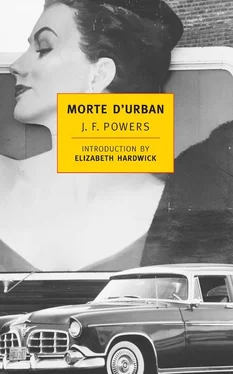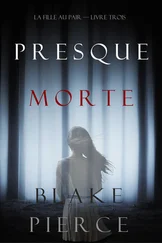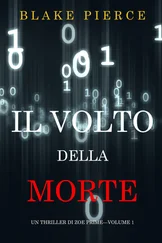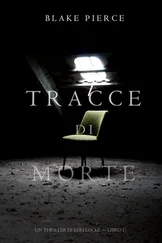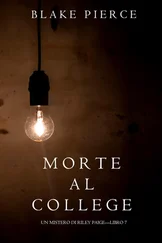Father Urban, an able swimmer, came smiling to the surface, returning good for evil. He stopped this, though, when Billy and Paul, reeling in their lines, drove off without him.
About an hour later, Chester and Honey came along in the boat and found Father Urban sitting on the shore. He waded out to them.
“We heard about it from Paul,” Chester said. “But we had to wait until they left.”
Father Urban got into the boat. “How did they leave?” he asked.
“Mad.”
This didn’t answer Father Urban’s question. He was thinking about the station wagon.
“And he didn’t pay up,” Chester said. “Told me I could take it out of the piano. Don’t think I won’t.”
“You can send me my part of the bill.”
“I wouldn’t think of it,” Chester said. “Unless you insist.”
“I insist.”
“He’ll be back,” Honey said. She was sitting up in the bow of the boat, facing out like a figurehead. “In the spring, I’ll bet. When the trout are up.”
Chester thought this over. “I’ll sell the piano, and get a good secondhand one,” he said. “In case he comes back.”
“He’ll come back when the trout are up,” Honey said.
“Yeah, that’s what I’ll do,” Chester said.
Honey turned toward them. “What will you do?” she asked Father Urban.
“I’ll think of something,” he said.
At four o’clock that afternoon, he was standing in the little park across from the bus station in Great Plains. He was wearing light cotton slacks, a white sports shirt, no hat, damp socks, and wet shoes, having taken only one pair with him on the trip north. So far, though he’d been waiting around the park for about an hour, and though he’d been a familiar figure in Great Plains only a few months before, nobody had recognized him. He was waiting for a Buster Blue bus, this being the line that served Duesterhaus and surrounding trade area, when a woman in a white convertible pulled up to the curb and spoke to him: “Father Urban?”
He smiled back, and, trusting his memory of the car, he took a chance: “Mrs Hopwood?”
“YOU’LL BE HAPPY to hear Katie got what was coming to her,” Sally said.
“I was hoping she would,” said Father Urban.
“We’ve had this kind of trouble before — before Katie. In fact, Norris is getting used to it. I can’t say that I am.”
Father Urban smiled. “But how’d you know I’d be happy to hear this? For that matter, how’d you know me ?”
“That morning you left the house — in a taxi — I saw you from my window. And Katie told me how you went to bat for her with Mother.”
“And struck out.” Or had he? Was it too much to hope that all might yet be well between him and Mrs Thwaites?
“You were trying the impossible, Father, if that’s any consolation to you.”
“One never knows about these things,” he said. Sally could be wrong.
“Norris and I had to pay Katie.”
“Oh?” said Father Urban. “Oh, I see.”
“Now tell me how you knew me ?”
“By the car, I confess.” Father Urban laughed at himself. “Not entirely, though.”
“No?”
“No, there is a certain resemblance. And, yes, I saw you in the distance, when you went out in the launch. From my window.”
A Buster Blue bus pulled up behind Sally’s car. Father Urban signaled that he was a passenger, but the driver was getting out to have a cigarette in the park, and so Father Urban did not say good-bye to Sally. She was well preserved for a woman easily thirty-five, possibly forty, small, finely made, attractive. She had a new-old quality that Father Urban had often noticed in children and in other young animals, a fey quality. He could see her in the red pony cart. He liked her as a person and could understand why Monsignor Renton called her the best of the lot. Father Urban felt that she liked him, too, or anyway was curious about him.
“You’re going back where you go?” she said.
“That’s right. I’ve been up in the northern part of the state for a few days. On a fishing trip.” He was trying to account for his appearance, but he knew it still sounded odd, for although there might be many parts of the world where people went on fishing trips by bus, Minnesota was not one of them. “I saw some beautiful country up there.”
“Is someone meeting you in Duesterhaus?”
“I doubt it.”
“I could drive you to your door. I couldn’t take you there right away, though. Are you in a hurry to get back?”
“Not a-tall,” said Father Urban. He was in no hurry to face Wilf without the station wagon, and signaled to the driver that he was not a passenger.
Sally advised him to put his bag in the trunk of the car. “I have to pick up someone,” she said.
Just as they were pulling away, Sylvia Bean went by in her little Barracuda. Father Urban waved, but Sylvia cut him dead.
A few blocks away, Sally stopped in front of a run-down apartment building and honked the horn. Presently a woman came out of the building. “This is the person who’s taking care of Mother now,” Sally said, her tone suggesting that she wished it weren’t so.
“Katie’s gone then?” said Father Urban. He got out of the car. He didn’t want to be sitting between two women.
“Yes, Katie’s gone back to Ireland.”
Father Urban had advised Katie to get in touch with him if she wished to leave Mrs Thwaites’s employment and couldn’t for lack of funds, but he really hadn’t known what he’d do if it came to transporting her to Ireland — unless, perhaps, Monsignor Renton could have been interested in the underground-railroad aspects of her case.
“This is a friend of the family,” Sally said, introducing him to the woman, and not otherwise identifying him — on account of his casual dress, he guessed, and current low rating in Mrs Thwaites’s hit parade of priests. “Mrs Leeson’s taking care of Mother now.”
Mrs Leeson climbed into the car, saying, “We have a lot of fun.” Sweet-smelling and made up like a birthday cake, she was a large-boned, muscular brunette somewhere between fifty and seventy-five. “Did you catch the Paar show last night?”
“As a matter of fact, I didn’t,” Father Urban said, when he realized that Mrs Leeson was talking to him.
“He just got back from a fishing trip up north,” Sally said.
“Now don’t tell me about the big one that got away,” Mrs Leeson said gruffly.
After more of the same, they arrived at Lake Lucille. Mrs Leeson, saying good-bye to Father Urban, expressed the hope that they’d meet again someday, and Sally said, “I’ll be out in a minute.” Father Urban sat in the car, wondering whether Mrs Leeson would mention him to Mrs Thwaites, and, if so, whether the old lady would roll over to a window to see who he might be, this friend of the family, and, if so, whether this was desirable or not. So far as he could tell, though, without staring, he was not observed from above. When Sally came out of the house, she said, “This must be yours,” and handed Father Urban one of his collars.
“Thanks. I’m always losing them.”
“Can I offer you a drink — or don’t you have time for one?”
“It isn’t a question of time,” Father Urban said, and looked up at Mrs Thwaites’s room — and thought he saw a curtain tremble.
Sally smiled. “No, I was thinking of the castle,” she said. She gazed away in the direction of the lake and the sun. “I saw Norris a while ago. There. I think I see him. I do, yes.”
Father Urban shaded his eyes. “I can’t say that I do.”
“He’s way out.”
“What’s he doing? Fishing?”
Sally nodded. “Come on, before he moves. Hadn’t you better leave that here?”
Читать дальше
